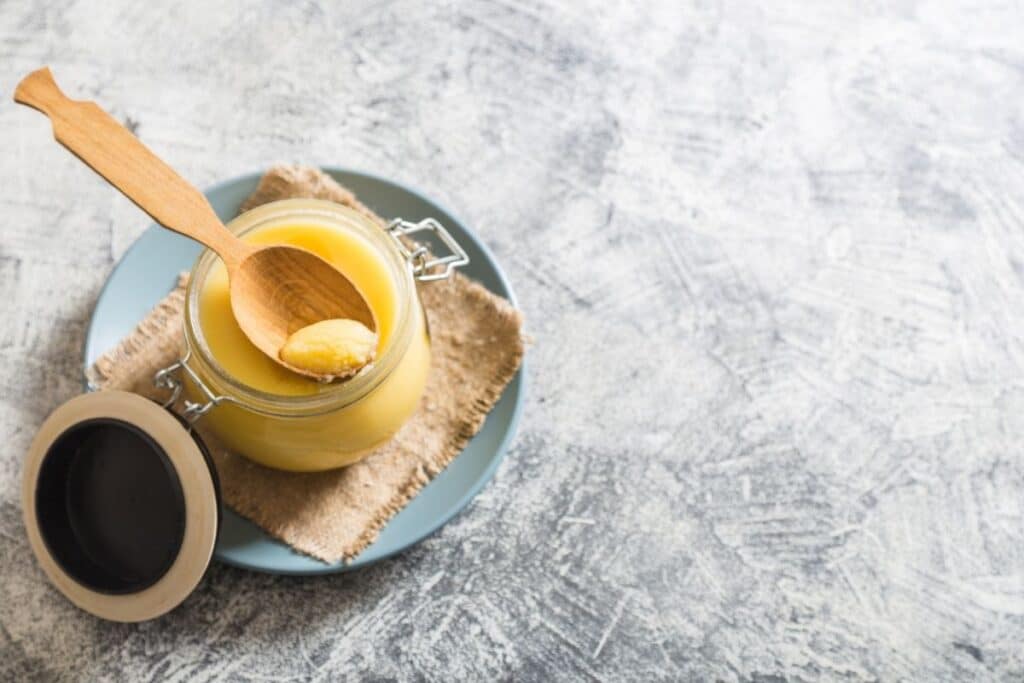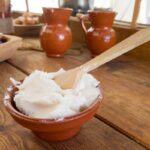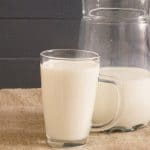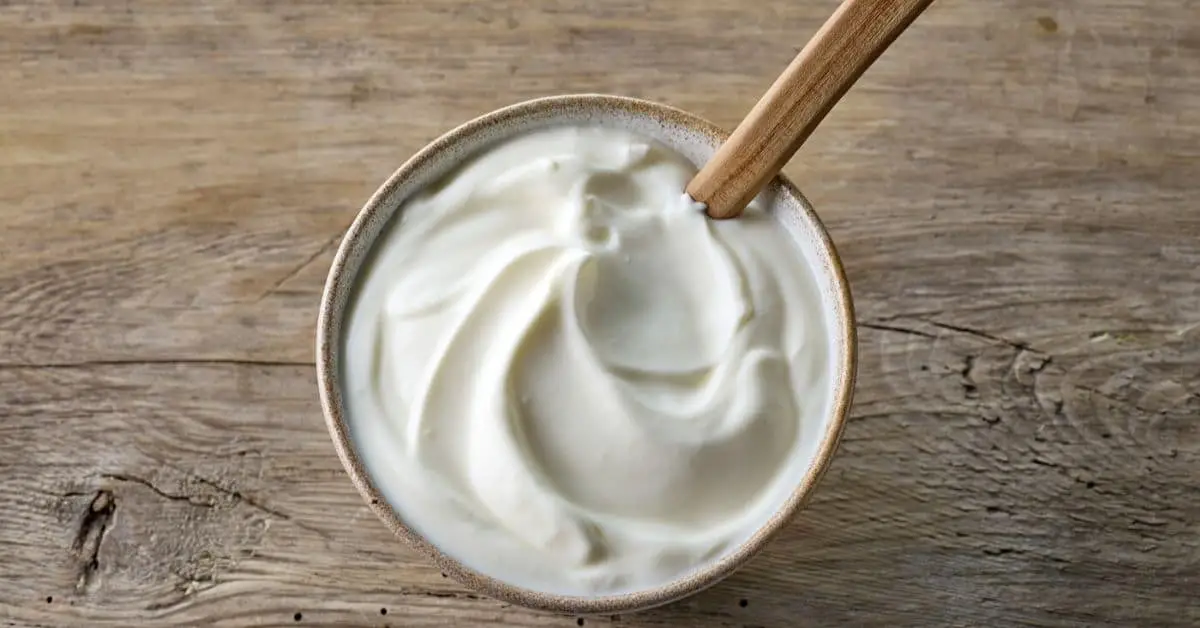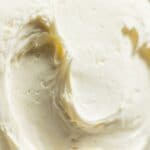In a nutshell: Yes, ghee can go bad over time. Signs of spoilage include rancid smell, mold, sour flavor, or changes in color and texture. Proper storage in a cool, dry place with a tightly sealed jar is crucial for maintaining ghee quality.
You know ghee is more durable than regular butter, but for how long? Can you use it after it has been open for half a year? Here are all the answers you are looking for.
You can look at ghee as a very purified version of butter. It consists only of fat and has no traces of dairy substances as the butter has. Because of this, it can last much longer and cannot spoil in a way that causes you serious health problems, which regular milk solids can. You should make a lot of effort to get the ghee to do you some harm.
Yet ghee definitely has an expiry date. Over time, it will become rancid and will lose quality even if stored properly. Thus, although it can withstand a significant period of time, you will not be able to keep it in the pantry forever.
Depending on how much you use it, adjust the size of the jar when you buy ghee. That way, you will always have fresh stock and the best quality.
Here is all the information you need about durability, storage, and how to see if the ghee has expired.
How Long Does Ghee Last?
What is shelf life of ghee? It depends mostly on the way you store it, although there is a lot of controversy in the advice here. Whether you need to place it in the fridge or not, you will come across several different instructions. Here are some of the most reliable estimates that we consider good.
Unopened ghee
Unopened ghee can stand at room temperature or somewhat more comfortably. It is important not to expose it to the sun or heat. Manufacturers set an expiration date depending on how long they can guarantee quality.
But you don’t need to throw away the ghee after the date from the label has passed. You can be sure that the product will be perfectly fine for another three months after that, and very likely up to six months after it expires.
Opened ghee
After opening, the ghee can stand at a comfortable temperature in the pantry. But you will probably have a significant quality extension if you decide to store it in the refrigerator.
The shelf life of open ghee will be at least three months in the pantry and at least six months in the fridge. It will probably last much longer than these estimates, but still, pay attention to the quality of the product.
Frozen ghee
Although it already has a long shelf life, you may need to preserve some quantities longer. In that case, you are free to freeze ghee. It will last up to a year in a deep freeze. Always try to defrost precisely the amount you need because it is not good to freeze the same product several times.
You can also put ghee in an ice cube tray if you want to get practical ghee cubes for later use. It is essential to store them in an airtight container or freezer bag.
Can Ghee Go Bad?
Ghee is more likely to lose quality and become unusable for the taste reason before it is actually spoiled. But it can certainly go bad in adverse conditions.
Here’s how to tell if ghee is bad and no longer usable:
Sign 1: It’s rancid
Ghee will sooner or later become rancid. Just like other types of oil, rancidity is inevitable over time. However, it really won’t occur fast. At least not if you ensure minimally comfortable storage conditions. So, if you notice a rancid odor or it smells sour, throw the product in the trash.
Sign 2: It has mold
Mold would be a possible occurrence on ghee, especially if you didn’t close the jar lid well. Although most mold spores are largely destroyed during heat treatment, throwing away such a product would certainly be better.
Sign 3: It has a sour flavor
After a long time, ghee can lose quality, and the taste can change. In this case, you will want to restock goods for qualitative reasons.
If your ghee has seen better days, you don’t have to give up on cooking. There are perfect and available ghee alternatives you can use.
What Is The Best Way To Store Ghee?
Ghee is a very resistant product, but it is still a portion of food. You should ensure basic storage conditions to have maximum quality and durability for as long as possible. Here are some basic instructions.
Tip 1: Choose a cool and dry place
The pantry will be a perfectly good place for ghee until opening. After opening, you can keep it in the fridge to be safer for longer. But you can also leave it in the pantry if you plan on spending it quickly. In that case, just make sure the jar is closed and the place is not damp.
Tip 2: Seal ghee jar well
Be sure to close the jar lid tightly each time after use. An open jar could allow moisture to be absorbed and mold to form, which will spoil the product much faster.
FAQs
How can you tell if ghee is bad?
You can tell if ghee is bad by its rancid smell, off or sour odor, and a change in color or texture from its usual golden appearance. If you notice any of these signs, the ghee may have gone bad and should be discarded.
Is it okay to use expired ghee?
Yes, it’s generally okay to use slightly expired ghee, but its quality and taste might be compromised.
Can expired ghee make you sick?
No, expired ghee is not likely to make you sick immediately, but consuming it could cause digestive discomfort due to changes in quality.
Does ghee need to be refrigerated?
No, refrigerating ghee is not mandatory. But if you are storing ghee in the fridge, you can preserve its quality better.
Is ghee bad if it turns white?
Yes, if ghee turns white and remains that way at room temperature, it could indicate a change in composition or spoilage. It’s advisable to examine its smell and taste; if they are off, the ghee might be bad and should be discarded.
Conclusion
Ghee has become an increasingly common ingredient in cooking around the world. This clarified butter has many advantages over ordinary butter or vegetable oil, and some advise using it for frying as it can withstand significantly higher temperatures. You can make homemade ghee yourself.
Although it is a very long-lasting product, pure butterfat is not eternal. In time, without exception, it will become rancid. But you don’t have to worry as this won’t happen in a short time. If you have an expired unopened jar of ghee in the pantry, you are free to use it for half a year from the expiration, if not longer than that.
See more: How long is butter good for?
*image by PantherMediaSeller/depositphotos
